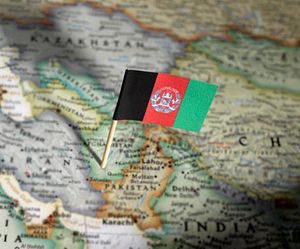The fears of many in Afghanistan finally came true last week. Last Friday afternoon, the convoy of leading presidential candidate Abdullah Abdullah was attacked, claiming the lives of at least six people in Kabul. Reports suggest that three of Abdullah’s bodyguards were also killed. Abdullah himself escaped unscathed.
With less than a week to go before Afghanistan’s run-off vote takes place, the attack is a strong signal of insurgent groups’ disapproval of the country’s democratic process.
So far the Taliban has not taken any responsibility for the attack, but it has always threatened Afghanistan’s elections. In the run up to the first round of elections, the Taliban conducted attacks to distract people from the elections. However, they could not deter Afghanistan’s masses from participating in the first democratic transition of the government. Over 60 percent of eligible Afghans participated in the election.
The attack comes on the heels of the recent prisoner swap involving U.S. soldier Bowe Bergdahl, who was released in exchange for five Taliban prisoners. The success of the swap enhanced the morale of the Taliban, who now feel encouraged.
The Taliban wants to register its presence at this crucial stage in the second round of elections in a big way. Failing to sway the voters in the first round, the insurgents want to discourage the electorate before the next week’s elections.
Abdullah was the frontrunner in the first round of elections, gaining a plurality of the vote. The former foreign minister is widely expected to be the next president of the Islamic republic.
The Taliban particularly dislike Abdullah because of his close association with the Northern Alliance, a group that fought the Taliban government for dominance over Afghanistan in the 1990s. The Taliban managed to wrest Kabul only after subduing the Alliance, which was a military front comprised of people from all ethnicities. Tajiks notably dominated the Northern Alliance.
The insurgents will find it difficult to accept a former leader of Northern Alliance as the head of the government in Kabul. Abdullah has consistently maintained that any talks with the Taliban have to happen within the framework of the constitution of Afghanistan and that the government has to deal with them from a position of strength, not from a position of weakness.
The current election in Afghanistan is not only about the future of democracy in the country; it is also about the relevance of the Taliban in the evolving political scenario in the Hindu Kush. A government elected by a popular mandate with a turnout of over 60 percent will carry far greater weight than the Taliban.
2014 is a crucial year for Afghanistan. The Taliban dreads democracy and the Afghan people’s participation in it. The underground militant group sees every ballot as a vote against its politics. By conducting attacks, the militant group wants to stop the march of history in Afghanistan.






























